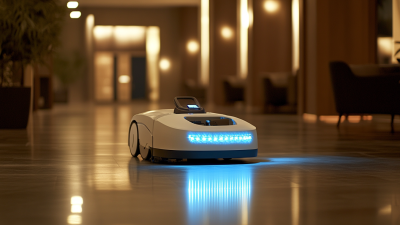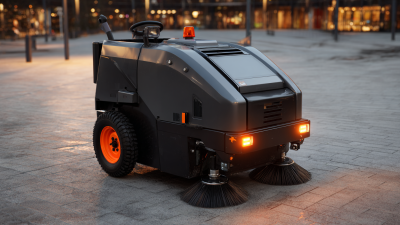When it comes to maintaining cleanliness in commercial spaces, selecting the right floor sweeper is crucial for enhancing operational efficiency and ensuring a safe environment. According to a report by the Cleaning Industry Research Institute, the global market for floor cleaning equipment is projected to reach over $10 billion by 2026, driven by increasing demand for advanced cleaning technologies. Additionally, a survey conducted by Facility Cleaning Decisions found that 63% of facility managers consider floor sweepers an essential part of their cleaning arsenal, highlighting their effectiveness in minimizing labor costs and improving productivity.
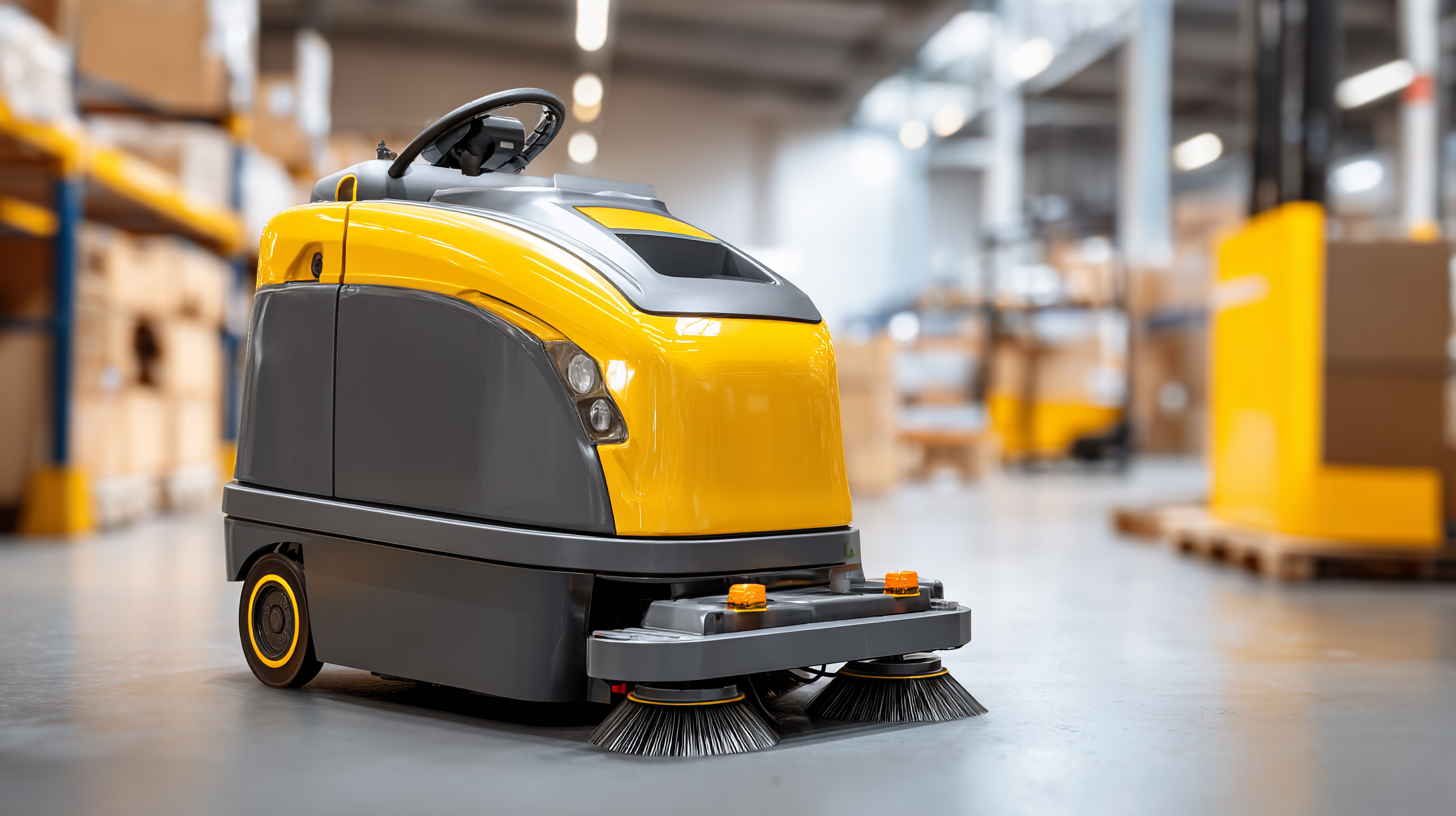
With various types of floor sweepers available—ranging from manual push models to sophisticated ride-on machines—understanding the unique needs of your business is paramount. This guide aims to provide insightful considerations and expert recommendations to help you choose the most suitable floor sweeper, ensuring your business stays clean and efficient.
When selecting a floor sweeper for your business, several key considerations come into play. Firstly, understanding the size and type of the area that requires cleaning is crucial. According to a report by MarketsandMarkets, the global market for floor cleaning equipment is projected to reach $5.4 billion by 2025, indicating a significant demand for efficient cleaning solutions. Businesses should assess whether they need a walk-behind or riding sweeper depending on the area size—walk-behind models are ideal for smaller spaces, while riding models are better suited for larger industrial locations.
Tip: Evaluate the maneuverability and weight of the floor sweeper. A lightweight model can be beneficial for tight spaces and easy transport, while heavier models may offer more durability and efficiency for extensive cleaning tasks.
Another vital factor to consider is the power source of the sweeper. Battery-operated models are gaining popularity due to their eco-friendliness and lower noise levels, aligning with the increasing focus on sustainability in the industry. According to a survey by IBISWorld, 60% of businesses prioritize energy-efficient equipment, highlighting the importance of selecting a sweeper that not only meets operational needs but also aligns with environmental goals.
Tip: Always check the maintenance requirements for any sweeper you're considering. A machine that is easier to maintain can save time and costs in the long run.
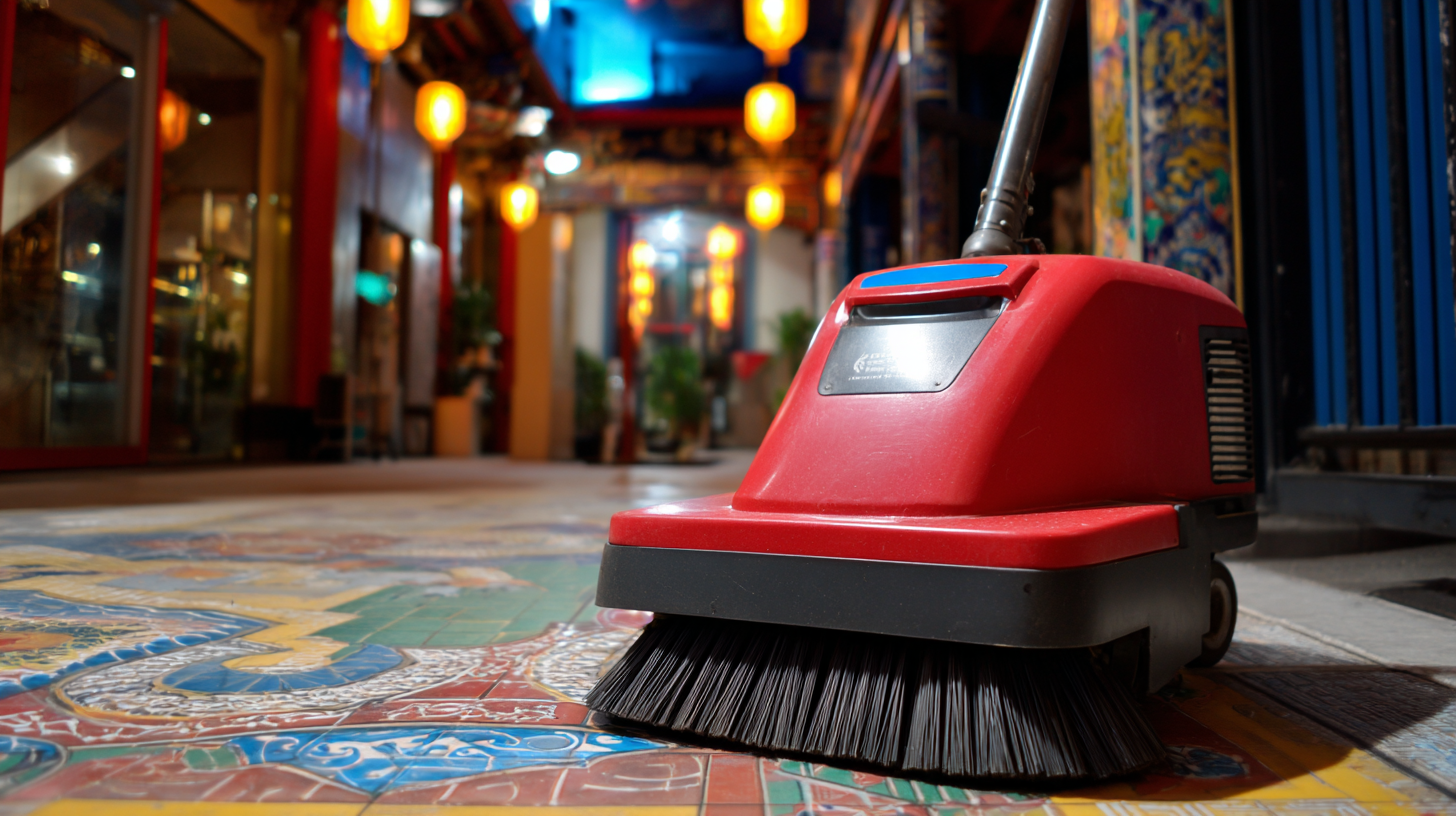
When selecting the right floor sweeper for your business, understanding the various types available is crucial. There are different types of floor sweepers designed to tackle specific cleaning needs. Manual sweepers are typically lightweight and perfect for small areas, while powered models offer greater efficiency for larger spaces. Battery-operated sweepers provide the convenience of cordless cleaning, allowing for easy maneuverability across different floor types, which can include hardwood, tile, or laminate surfaces.
Additionally, specialized sweepers are available for specific applications. For instance, some models are designed with features that make them effective on uneven surfaces, while others may be equipped with advanced filtration systems to capture fine dust and allergens. When choosing a floor sweeper, consider factors such as the size of the area to be cleaned, the types of debris commonly encountered, and the desired ease of use. This careful assessment will ensure that you select the right tool to maintain cleanliness and efficiency in your business environment.
When selecting the right floor sweeper for your business, evaluating the size and layout of your facility is crucial. According to a report by Statista, nearly 70% of businesses experience productivity losses due to inefficient cleaning practices. Thus, assessing your space allows you to choose a machine that maximizes efficiency while meeting your specific cleaning needs.
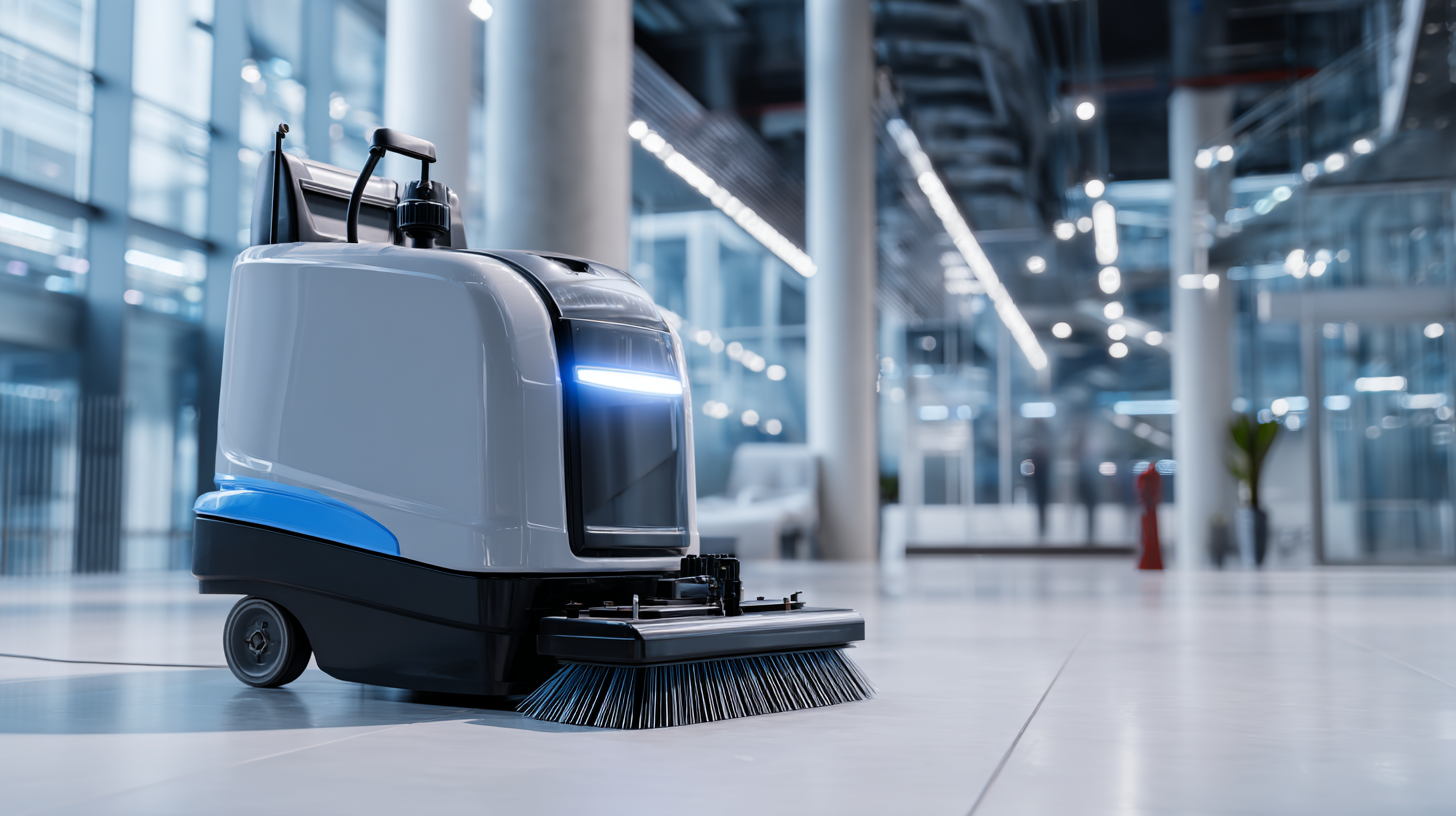
Consider the dimensions of your facility and the types of surfaces that require maintenance. For instance, a narrow aisle in a warehouse might necessitate a compact sweeper that can maneuver easily without sacrificing suction power. A 2022 survey by the Cleaning Industry Research Institute indicated that facilities under 10,000 square feet benefit most from small, ride-on sweepers, which optimize both time and labor costs. Additionally, the layout—whether open spaces, cluttered areas, or multiple levels—plays a pivotal role in determining which features, such as battery life and filtration systems, will enhance your operations.
By tailoring your choice of floor sweeper to the specific characteristics of your facility, you not only boost productivity but also ensure a safer, cleaner environment for employees and customers alike. Understanding these dynamics can ultimately lead to significant savings and improved operational efficiency.
When selecting the right floor sweeper for your business, it's crucial to evaluate key features and specifications that align with your operational needs. First, consider the type of environment where the sweeper will be used. For example, a manufacturing facility may require a robust machine capable of handling heavy debris, while a retail space might benefit from a more compact and maneuverable unit. Look for features such as adjustable brush height and varying cleaning modes to ensure versatility in different settings.
Additionally, pay attention to the machine's power source—electric, battery-operated, or gas. Each type has its advantages; electric sweepers are quieter and ideal for indoor use, while gas-powered models can handle larger outdoor areas. Moreover, check the filtration system; a high-quality filter can significantly improve air quality by trapping dust and allergens.
Finally, consider the durability and ease of maintenance. Investing in a sweeper made from high-quality materials can lead to long-term savings by reducing repairs and downtime.
When considering the purchase of a floor sweeper for your business, it’s crucial to engage in a cost versus value analysis. According to a recent report by the CleanTech Industry Association, companies can save up to 30% in labor costs when utilizing mechanized cleaning solutions instead of manual methods. The initial investment in a quality floor sweeper may seem high, but the long-term value often outweighs the upfront expenditure. Manufacturers, such as Tennant and Nilfisk, are leading the market with products that offer both robust performance and energy efficiency, resulting in lower operational costs.
**Tips:** When budgeting for a floor sweeper, first evaluate the specific cleaning needs of your facility. The size and type of the area being cleaned will significantly impact product choice. Additionally, consider models that offer longer battery life and lower maintenance costs. Utilizing lifetime cost analysis tools can help businesses forecast the total cost of ownership and thus identify which models will deliver the best return on investment over time.
Another important aspect to consider is the potential for scalability. If your business expands, will your chosen floor sweeper still meet your needs? The International Sanitary Supply Association suggests that investing in versatile machines can mitigate future expenses, as they can often adapt to various cleaning tasks and environments, thus providing significant value over time.
